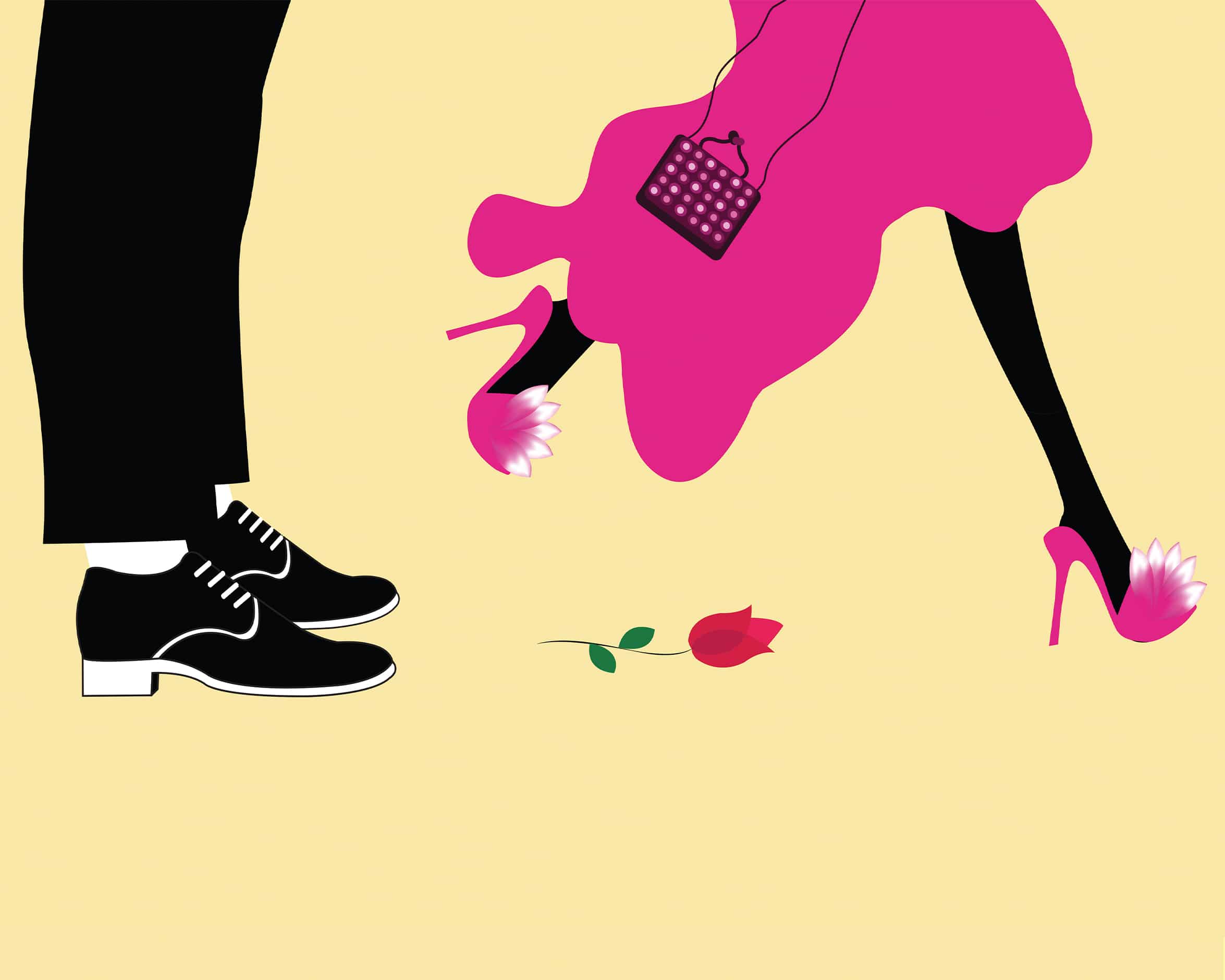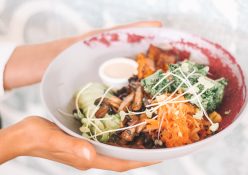The end of a marriage is stressful enough, but to dive right into finding a new partner, in the brave new world of online dating, can be even more so. Here’s what you need to know
Earlier this year, Statistics SA released its most recent report on divorce in South Africa – and it ain’t pretty. Divorce increased 10.9% between 2021 and 2022, and more females were affected by divorce at younger ages compared to male divorcees. Most divorces were from marriages that lasted up to nine years, followed by ones that lasted between 10 and 14 years. Those in the latter category would have probably missed the advent of Tinder, which launched in 2012 and transformed the world of dating.
In the good ol’ days, people mostly relied on parties, blind dates, travel and IRL work and social networks to meet potential partners. Sure, there were dating websites, but these were nowhere near as popular as apps like Tinder are today, which means they offered less in the way of choice: fewer users, fewer options.
By the end of 2021, Tinder had 75 million users across the globe. Users can browse a seemingly endless supply of possible partners. More options are a good thing, right? Not necessarily. This exponential increase in choice – coupled with the `gamification’ of online dating – has led to something US psychologist Barry Schwartz calls the ‘paradox of choice’: an abundance of options actually requires more effort to choose and can leave us feeling unsatisfied with our choice.
If you’ve recently emerged from the chaos of divorce and are contemplating dipping your toes back in the dating pool, it’s natural to feel cautious and a tad overwhelmed. The dating world has always been a jungle – only now it’s a virtual jungle. Thankfully, there are timeless dating guidelines that still apply… once you have these in place, navigating new advances in tech will be much easier.
Am I ready for dating?
“Even if your divorce was amicable, no divorce is an easy divorce,” says Cape Town relationship coach Jo Marsh. “To a greater or lesser degree, there’s invariably some sort of trauma, rage, resentment, grief… All those emotions need to be worked through before you open up to a new relationship.
“Everyone is different, but, on average, I estimate that we need about a year to grieve the life that was lost. Divorce is like a kind of death, and while it can certainly lead to rebirth, there needs to be a grieving period: for the loss of the relationship, the loss of yourself, the hopes and dreams you shared. If trust was broken, if there was betrayal, you also need time to work through that.”
If you’re feeling a sense of urgency or angst to start dating again immediately, you’re probably not ready. “Why the rush?” asks Jo. “Are you afraid of being alone? Afraid you might have an ‘expiry date’? Divorce can put a serious dent in our self-esteem, and it’s tempting to reach for a hit of affirmation in the form of superficial flattery on Tinder, for example. But you’re unlikely to make wise choices regarding a partner from this place – you may be too willing to compromise and overlook important red flags.”
Rather, you know you’re ready to open up to new possibilities when there is a sense of ease and flow, of not taking it too seriously or feeling a compulsive desire to be ‘chosen’. Get clear with yourself on what you want and be prepared to wait until it feels right.
Where do I start?
Before you even think about which dating site to join, be sure you know what you’re after and what your non-negotiables are.
“Are you looking for someone to share your life with? Or just testing the waters? Perhaps you’d like to have a no-strings-attached fling. Whichever it is, it’s important to be clear on this so that you don’t mislead anyone or wind up in a mismatch,” says Jo.
This can save you a lot of time and heartache down the line, and give you a benchmark by which to decide if someone is suitable. Just because someone shows an interest in you, doesn’t mean they’re good for you.
“If you don’t know what your values are, you’ll never know if they’re being violated or if they’re out of alignment with someone else,” explains Jo.
Once you understand what you’re after, you can begin to contemplate which platforms to join and how to present yourself.
Forget having one basket
Online dating isn’t everything. In fact, you’ll expand your chances of meeting someone special – and staying sane – if you broaden your exposure to new experiences, and new people, beyond dating apps.
“One of the things I encourage people to do is put the phone down and get out there,” says Jo. “If there’s an activity you enjoy (pottery, hiking or learning a new language, whatever), is there a society, club or group that fits the theme that you could join, or perhaps take a class? Joining a community where there are shared interests – not because you’re looking for a soul mate but because you’re genuinely interested in it – is a fantastic way to meet new people, and a potentially suitable partner. Another way of meeting new people is to go to networking functions and events in your line of work.”
Pro tip: be scam savvy
Most dating apps and websites have a checklist of safety tips or red flags that indicate you ay be dealing with a romance scammer. It pays to familiarise yourself with them, Watch The Tinder Swindler on Netflix for good measure!
What’s (non-)monogamy got to do with it?
Tinder and other dating apps such as Feeld allow users to display their relationship type on their profile. You may also encounter profile bios that include descriptors like ENM (ethical non-monogamy), FWB (friend with benefits) or ONS (one-night stand). Yes, non-traditional relationship styles are becoming more mainstream, so you may encounter (and even be curious about) polyamory, open relationships or couples looking for a ‘unicorn’ or ‘playmate’.
“Whether or not you choose to engage, again goes back to the question: What is important to you in a relationship?” says Jo. “If fidelity, feeling safe and monogamy are important to you, own it. You’re never going to be happy in a non-monogamous relationship. However, if a certain kind of freedom is important to you at this time, and you’re curious and open to new experiences, try out other relationship styles and see what happens.
“It’s all about self-awareness and understanding what’s right for you. If something doesn’t feel right for you, don’t allow yourself to be persuaded to participate just to try it out – because it’s going to burn you.”
Women are especially vulnerable after divorce, Jo adds, so be very sure to do the work to heal and understand yourself before stepping into any new relationship, no matter the type. Ultimately, diving back into dating should be fun and exciting. But if it begins to feel like a chore, too time-consuming or too stressful, take a step back. Focus on what brings you joy and fulfilment, and live your life to the fullest. That’s usually when love finds us, anyway!
Online dating sites
- Tinder: The most popular dating app by far. Users are typically looking for both long-term love and easy hook-ups (i.e. sex), and everything in between.
- Bumble: Designed to be (hetero) female friendly, the woman alone gets to decide whether she’d like to make contact with a ‘match’.
- Hinge: Geared towards long-term love, Hinge purports to offer better matches by deploying AI and machine- learning techniques.
- Feeld: This dating app allows you to choose from more than 20 sexualities/gender identities, and users can link their partner’s profile to their own.
- Badoo: A general dating app with all the usual features: swipe right or left, video chat and geolocation (to help you meet people nearby).
- Matchmaker.co.za: A popular web-based dating site with the same ‘swipe’ formula.
- SouthAfricanCupid.co.za: Another web-based dating site for those “interested in serious dating and long- term relationships with South African singles”.
Words by Robyn Maclarty
Text courtesy of Balanced Life magazine
Illustration: Gallo/Getty Images







